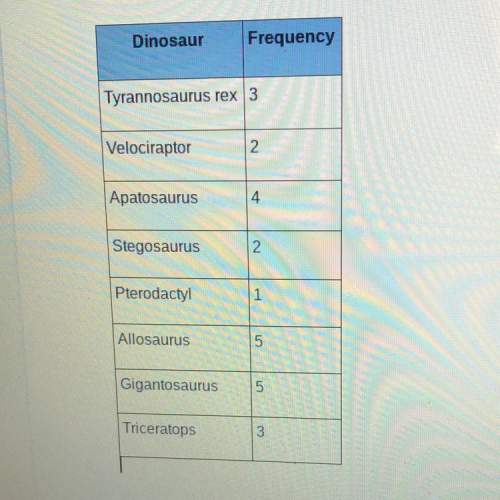
Mathematics, 24.09.2019 05:20, memoryofdale
1. what was the theoretical probability of collecting a specific dinosaur, such as a velociraptor, in a single purchase?
2. how many spins did it take before you had at least one of each dinosaur in trial 1? trial 2? trial 3?
3. how does the number of spins correlate to the number of boxes of cereal that you would need to purchase?
4. what was the experimental probability for each dinosaur from trial 1? trial 2? trial 3?
5. how does the experimental probability of getting each dinosaur differ from the theoretical probability? here, you are
comparing the experimental vs. theoretical probability of getting each type of dinosaur in a single purchase. in other
words, you are determining the probability for a single event, not a compound event.
6. if someone bought eight boxes of cereal and got all eight dinosaurs, would you be surprised? why or why not?
7. how did the experimental probabilities change between the trials?
8. what are the advantages of using a simulation versus actually buying boxes of cereal?


Answers: 3
Other questions on the subject: Mathematics



Mathematics, 21.06.2019 23:00, teriateria
How can writing phrases as algebraic expressions you solve problems?
Answers: 2

Mathematics, 21.06.2019 23:30, jacesmokesloud7254
Use the ratio test to determine whether ∑n=14∞n+2n! converges or diverges. (a) find the ratio of successive terms. write your answer as a fully simplified fraction. for n≥14, limn→∞∣∣∣an+1an∣∣∣=limn→∞.
Answers: 3
Do you know the correct answer?
1. what was the theoretical probability of collecting a specific dinosaur, such as a velociraptor, i...
Questions in other subjects:

History, 12.02.2021 14:00


Social Studies, 12.02.2021 14:00



World Languages, 12.02.2021 14:00

Business, 12.02.2021 14:00









